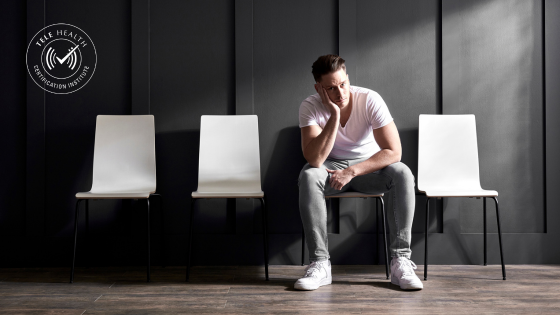
Do No Harm, Ethics for Clinicians During Covid-19
Do no harm. Your ethical code as a clinician requires that above all, you promote the welfare of your client and avoid harm.
Now that COVID-19 is raging across America, this mandate takes on a new question: how do clinicians avoid physically harming clients amid a global pandemic?
According to the CDC, in-person talk therapy in an office seems an ideal way to spread the coronavirus if either the clinician or client is infected:
- The virus that causes COVID-19 most commonly spreads between people who are in close contact with one another (within about 6 feet, or 2 arm lengths).
- It spreads through respiratory droplets or small particles, such as those in aerosols, produced when an infected person coughs, sneezes, sings, talks, or breathes.
- These particles can be inhaled into the nose, mouth, airways, and lungs and cause infection. This is thought to be the main way the virus spreads.
- Droplets can also land on surfaces and objects and be transferred by touch. A person may get COVID-19 by touching the surface or object that has the virus on it and then touching their own mouth, nose, or eyes.
- There is growing evidence that droplets and airborne particles can remain suspended in the air and be breathed in by others, and travel distances beyond 6 feet (for example, during choir practice, in restaurants, or in fitness classes). In general, indoor environments without good ventilation increase this risk.
To avoid spreading or catching the virus, many clinicians switched their practices to telehealth. But what if you want to see clients in person again? Not only do you face some big changes in how you keep your office clean and ventilated - but you also face new ethical issues.
At the top of the list likely will be face masks. The CDC recommends masks to help slow the spread of COVID-19.
“Cloth face coverings are one of the most powerful weapons we have to slow and stop the spread of the virus – particularly when used universally within a community setting. All Americans have a responsibility to protect themselves, their families, and their communities,” said CDC Director Dr. Robert R. Redfield.
But masks have become politicized. What if a clinician doesn’t want to wear a mask? It is ethical to sit in a closed office and talk to a client for an hour without a mask? What if a client refuses to wear a mask?
None of our current ethics codes were written with a pandemic in mind.
The last update to the American Counseling Association’s Code of Ethics was in 2014. Not surprisingly, it does not mention the coronavirus or face masks. But the No. 1 ethical principle clearly states that a counselor’s primary responsibility is the look after their client’s welfare:
A.1. Client Welfare
A.1.a. Primary Responsibility
The primary responsibility of counselors is to respect the dignity and promote the welfare of clients.
The National Association for Social Workers ethics code was last revised in 2017. Its preamble calls for social workers to “enhance human well-being”:
The primary mission of the social work profession is to enhance human well-being and help meet the basic human needs of all people, with particular attention to the needs and empowerment of people who are vulnerable, oppressed, and living in poverty.
While these ethical guidelines are broad, and not specific to our current dilemma, many counselors have interpreted them to mean they should stick with telehealth, or re-open cautiously with mask requirements, better ventilation, stepped-up cleaning, and other precautions.
If a clinician does choose to see clients in the same location (same-location sessions) and decides to ignore CDC guidance on masks, they could risk a lawsuit if a client gets ill. CPH & Associates, a malpractice insurance provider for counselors and social workers, says that “despite the fact that such an assertion would be difficult to prove, a claim or lawsuit might nevertheless be filed.”
Even clinicians who decide to require masks and go the extra mile on cleaning may still face other ethical issues. Here are some tips:
- Check your state laws to make sure you are legally allowed to open
- Ask your client about their health: are they in a high-risk group?
- Update your informed consent to warn clients that you cannot guarantee their safety
- Check with your malpractice insurance company to make sure it will still cover you
- Consult with colleagues in your area to see how they’re handling re-opening
- Keep telehealth as an option for clients who are not comfortable with same-location sessions
Remember, you have options. Pick the ones best for your clients, and do no harm.
By: Amanda Barnett, LPC, NBCC, MS, EDS
Key Resources
American Counseling Association Code of Ethics
National Association of Social Worker Code of Ethics
CDC: How the coronavirus is spread
COVID-19: When is it OK to resume in-person services?
CPH & Associates: TELEHEALTH AND COVID 19 – Thoughts and Outlook
Testimonials
Bridgette Nalumu
Public health consultant, Green and Purple Consultancy Network
Lora Verley
Clinical Therapist, Bayless Integrated Healthcare
Jackie Tanna
Therapist, Region One Mental Health
Jackie Bell-Russell
Therapeutic Behavioral Strategist, Rialto Unified School District